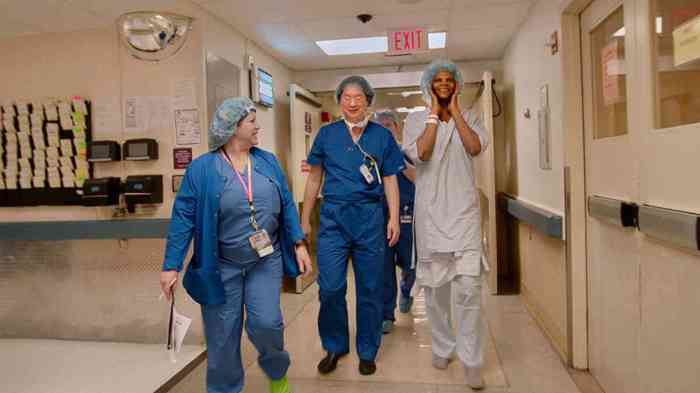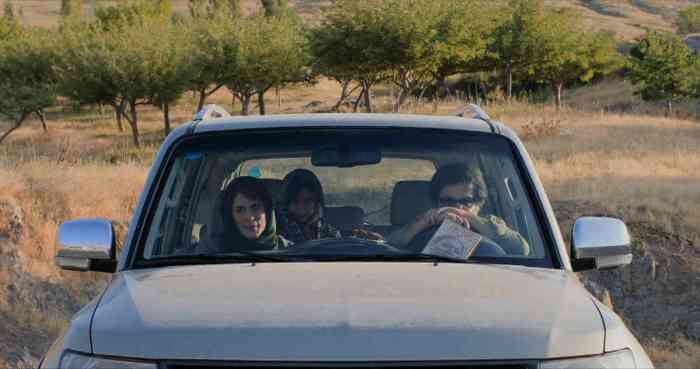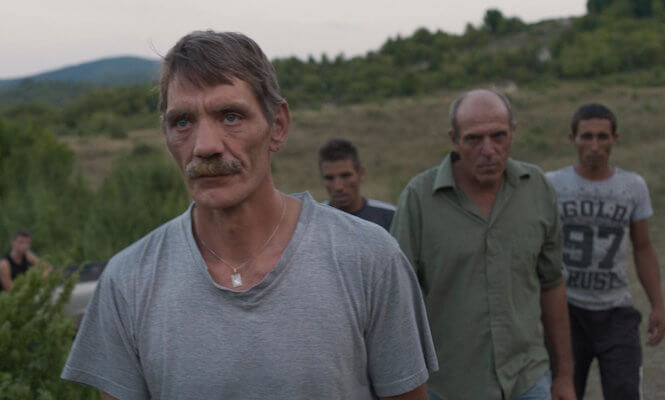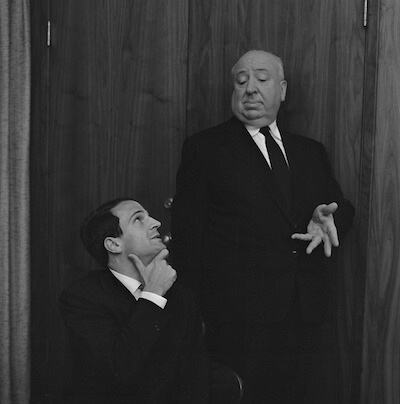Léa Seydoux and Adèle Exarchopoulos in Abdellatif Kechiche’s “Blue Is the Warmest Color,” which screens on October 11. | NEW YORK FILM FESTIVAL
The New York Film Festival continues ballooning. It wasn’t so long ago that it consisted of a mere 25 films. Now its main slate has expanded to 33, but the real story is the profusion of sidebars, documentaries, interactive screenings, avant-garde offerings, and restored classic films.
This year’s main slate offers an amazing selection of Asian films, featuring Tsai Ming-liang, Kiyoshi Kurosawa, Hong Sang-soo, Hayao Miyazaki, Lav Diaz, Hirokazu Kore-eda, Jia Zhangke, and other veterans from that continent. There’s also the usual roster of high-profile Indiewood and Hollywood films from James Gray, Paul Greengrass, the Coen brothers, Alexander Payne, Spike Jonze, Steve McQueen, and Ben Stiller.
Works of LGBT interest are sprinkled throughout, including a 1975 film by the late gay Filipino director Lino Brocka and two programs of shorts by queer avant-garde master Nathaniel Dorsky. There are three that take center stage: Joaquim Pinto’s “What Now? Remind Me,” Alain Guiraudie’s “Stranger By the Lake,” and Abdellatif Kechiche’s “Blue Is the Warmest Color” (Oct. 11, 8:30 p.m.). The latter, which took the top prize at Cannes last May and opens next month, has been controversial for its 10-minute sex scene and the fact that it’s a lesbian romance directed by a straight man. If you can’t wait until its October release at the IFC Center, the festival provides an opportunity to see for yourself whether Kechiche offers up empathy or another example of the male gaze.
Hirokazu Kore-eda’s “Like Father, Like Son”s screens on September 30 and October 2. | FUJI TELEVISION NETWORK, INC./ AMUSE INC./ GAGA CORPORATION
Kore-eda is one of the few contemporary Japanese directors whose work seems directly connected to the classic cinema of Mikio Naruse and Yasujiro Ozu. Even his film about a sex doll come to life, “Air Doll,” was relatively chaste. “Like Father, Like Son” (Sep. 30, 6 p.m.; Oct. 2, 6 p.m.) takes an oft-used premise: two babies have been switched at birth and arbitrarily assigned to very different families. (An Israeli film based on the same idea came out here last year.) The boys are six years old when the switch is exposed: Kenta lives with an uptight yuppie dad, while Ryusei lives with a shopkeeper who’s much more relaxed and open to pleasure.
The film’s general point is pretty obvious: families are groups of people who love each other and do not necessarily need to be blood relations. However, it’s crammed with fascinating details of Japanese domestic life, such as measuring the differences between the two dads by their abilities to fix broken toy robots. “Like Father, Like Son” flirts with sentimentality but knows better than to fully indulge it. Instead, it’s gently moving.
Stephanie Spray and Pacho Velez’s Nepal-shot “Manakamana,” which follows travelers on a cable car into the hills of Nepal heading to a temple, screens on September 28 and 30. | NEW YORK FILM FESTIVAL
Stephanie Spray and Pacho Velez’s Nepal-shot “Manakamana” (Sep. 28, 1:30 p.m.; Sep. 30, 3:30 p.m.) straddles two of the festival’s sidebars, “Views From the Avant-Garde” and “Motion Portraits.” A product of Harvard’s Sensory Ethnography Lab, which gave us the masterpiece “Leviathan” earlier this year, this experimental documentary follows travelers on a cable car into the hills of Nepal to visit a temple honoring the title goddess. Each trip lasts about eight minutes, and the directors set up a microphone and static camera to record them.
The emphasis on duration evokes avant-garde director James Benning’s landscape films, but Spray and Velez are far more concerned with human behavior than Benning works like “13 Lakes” and “Ten Skies.” Their film shares as much with Andy Warhol’s screen tests or Shirley Clarke’s “Portrait of Jason.” Whether they look out the window, down at their shoes, or talk, the cable car’s passengers reveal a lot about how people react to a camera’s presence. Like “Leviathan,” “Manakamana” is far from overt politics, but it can’t help functioning as a snapshot of a changing society, where young heavy metal musicians share space with elderly pilgrims.
Joaquim Pinto’s “What Now? Remind Me” (Sep. 28, 8 p.m.; Oct. 1, 2:30 p.m.) is a much different kind of experimental documentary, seemingly inspired by Jonas Mekas’ diary films and Chris Marker’s cinematic essays. The Portuguese director documents a year in his life, during which he undergoes experimental treatments for HIV and hepatitis C. These are often agonizing and not particularly successful, yet Pinto seems lucky to be alive given the roster of dead friends he offers up over the course of the film.
The film is about his experiences, in the broadest sense of the word –– life in the rural Azores with his husband Nuno and a pack of dogs –– and a wide range of musings about spirituality, history, and culture. Stylistically, “What Now? Remind Me” has an unobtrusive beauty, marked by a fondness for superimpositions. Pinto seems to like insects almost as much as dogs –– one of the film’s most memorable scenes shows a bee taking a bite from his cheeseburger. “What Now? Remind Me” is the kind of work that could only be made with a lifetime of knowledge behind it. It transcends the narcissism that it could easily have fallen into, as Pinto winds up speaking for a generation of gay men whom he managed to outlive.
Christophe_Paou_Pierre_Deladonchamps.jpgChristophe Paou and Pierre Deladonchamps in Alain Guiraudie’s “Stranger by the Lake,” which screens on September 30 and October 2. | STRAND RELEASING
French director Alain Guiraudie’s “Stranger by the Lake” (Sep. 30, 9:15 p.m.; Oct. 2, 1 p.m.) received much attention at Cannes last spring, largely for its unsimulated explicit gay male sex scenes. So far, it’s been almost universally praised, apart from a few closed-minded straight critics –– a strange fate for a film whose vision of death-haunted sex isn’t too far from magnets for gay and lesbian controversy like “Cruising” and “Basic Instinct.”
At a lakeside cruising area, Frank (Pierre Deladonchamps) witnesses Michel (Tom Selleck lookalike Christophe Paou) kill a man. Rather than turning Michel in, Frank finds the handsome man even hotter and begins having sex with him. “Stranger by the Lake” knowingly toys with stereotypes of gay men as hedonistic, promiscuous creatures who have disconnected sex from emotion. Its critique of gay culture is harsh –– its characters can barely sustain enough intimacy to have friends. It takes place in an isolated world where there are no alternatives to this chosen mode of existence. Here, the utopia of ‘70s sexual liberationists has gone badly awry, and “Stranger by the Lake” charts the consequences.
I think it might have worked better as a period piece –– which it feels like apart from one discussion of HIV –– or if it acknowledged the possibility of gay men having long-term relationships as something more than a distant likelihood. But most of my qualms evaporated in its brutally suspenseful final 10 minutes, in which Frank has to face how much his desire for sex really is a death wish.
51ST NEW YORK FILM FESTIVAL | Various venues at Lincoln Center, Columbus Ave. at 64th St. | Sep. 27-Oct. 13 | $15-$25; $5 less for members; opening night is $100; $75 for members; closing, other galas are $75/ $50 | Tickets at filmlinc.com ($1.50/ ticket surcharge) or Alice Tully Box Office, 1941 Broadway at 65th St.





































